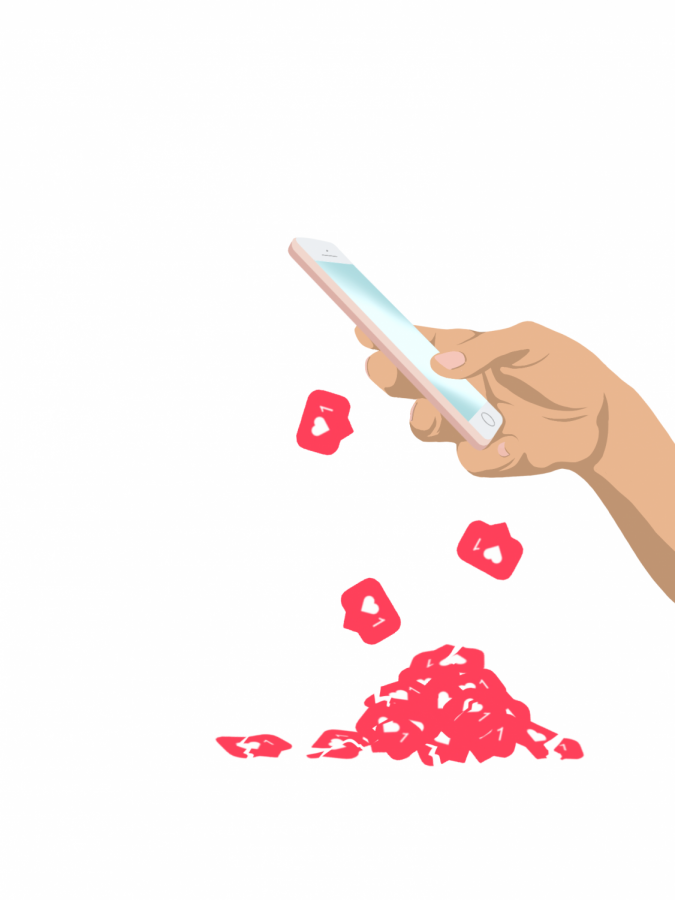#NoMoreLikes
Taking away likes on Instagram is beneficial to our mental health
December 20, 2019
This anxiety-ridden state caused by the frequent checking of new notifications is what led Instagram to start testing the disappearance of likes on the app: while users can view the number of likes their own post has gotten, they will be unable to view the likes on other users’ posts. This change is meant to prevent users from comparing their number of likes to those of other users. According to Instagram CEO Adam Mosseri, some users in the U.S. and other countries have already been subject to the test.
The removal of likes is just another, albeit more drastic, strategy to make Instagram a safer online community; Instagram has already made several changes in an attempt to support users’ mental wellbeing, such as incorporating a feature where users can limit the time they spend on the app. Removing the like count can seem unsettling for some, as likes have been around ever since we created our first Instagram accounts in middle school. Nevertheless, it is something we should positively accept.
Moreover, celebrities have spoken out about the change; Nicki Minaj went as far as to tweet that she won’t be posting on Instagram anymore because of the removal. While this proves that the famous double-tap is Instagram’s signature feature, it is also easily addicting. Social media is meant to captivate users, as corporations generate more profit the more we aimlessly scroll. The change Mosseri is making is one factor that can alleviate how much we invest on Instagram, preventing a greater addiction that can be detrimental to our mental health.
At the same time, this change is harmful to influencers and content creators in Instagram as likes bring them sponsors, clients and popularity. Canadian influencer Kate Weiland says that likes motivate Instagram users and that this removal is analogous to “no audience applause at the end of a performance.” While this may be true, likes aren’t a determining factor to generate business for influencers like Weiland. Social media strategist Karen Civil says that followers, shares and clicks matter more to businesses that influencers may want to appeal to, as opposed to likes.
It’s important to recognize that Instagram is taking a step to improve the mental state of every one of their users, and not only teens; while Selena Gomez has millions of followers on the app, she doesn’t have it downloaded due to its negative effects on her mental health. But because of the recent change, it can positively affect how even large influencers approach the app.
We often worry about the number displayed by each of our posts, especially if they’re public to everyone. Sometimes, we go as far as deleting posts that don’t get as many likes as we would want, resulting in a waste of time and effort. The change can stop us from obsessing over numbers, and worrying about how other people will react to the number of likes on our post as they scroll past it. It can also put an end to competition between users and the need to have a greater like count than others.
Taking away likes is a bold, yet necessary move by Instagram. Although influencers may be negatively affected, our mental health is ultimately more important, as the change can reduce the amount of energy our generation invests in using social media as yet another metric by which we should be compared to each other.



















